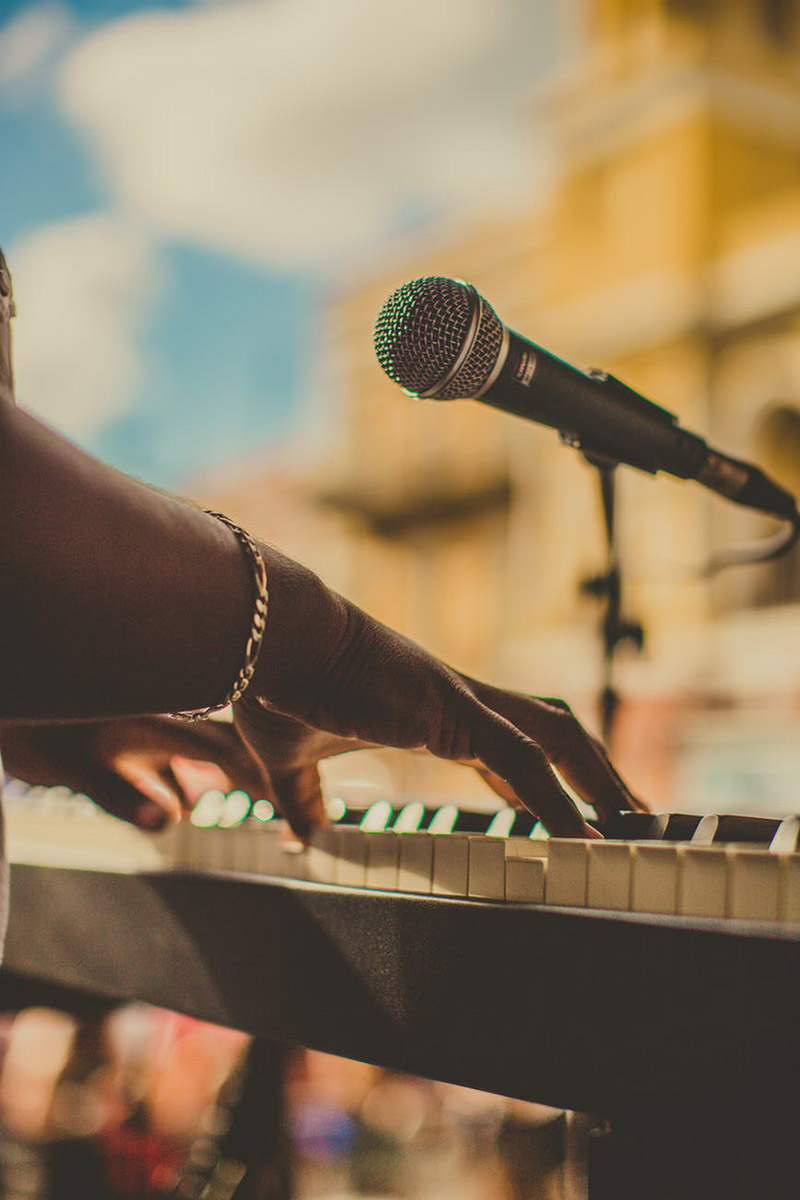(Aether Bios Clinic) Bridgeford’s Best Bites: Osteopathy Tips
MUSICIAN’S ISSUES – FACING THE MUSIC

Photo by Caleb Oquendo on Pexels.com
Playing music is usually a much beloved hobby or profession. It takes many years of study to become proficient or begin to master an instrument, often requiring long hours of dedicated practice. Unless you are playing as a requirement of your parents or school system, you are unlikely to choose to invest the time and effort that is required unless it is a labour of love.
Physical problems can arise from playing musical instruments, depending on the instrument, your body posture while playing and the amount of time spent playing. Many of the physical problems encountered by musicians relate to lifting and carrying large and heavy equipment, often in awkward spaces and also when cold and/or tired. Other common problems relate to repetitive strain, overplaying, poor posture, poor technique and some instruments simply require an awkward position.
Neck and Upper Back: Awkward positions in the neck are required in playing the flute and violin. Holding a heavy guitar on a strap for a long time while playing can create problems in the neck, where the nerves can be squeezed and radiate pain down the arm and wrist. Classical guitarists use a foot stand and hold the guitar in a particular way for a reason! Hanging a saxophone or other instrument off the neck can also create problems, there are more supportive back straps that can help alleviate this problem. I can only imagine how a French horn feels. Long hours of piano and keyboard playing can also stress the upper back and neck unless postural correction is applied. Intense drumming or leaning in towards a cello, harp, double bass or hand drum, etc. can also stress this area.
Lower Back: This is mostly affected by lifting, though can also be affected by holding an instrument, particularly if it is for a long time or if your posture is less optimal, also if you are in an awkward position!
Legs, Hips, Knees, Ankles, Feet: Affected by long hours of standing, dancing, pedalling of harp, organ and base drum, etc.
Arms, Shoulders, Elbows, Wrists, Hands: Playing all forms of instruments that use sticks or bows, as well as strumming and plucking strings can affect the wrists and hands if the position is awkward or forced, the grip is too tight and also if there is repetitive strain. The hand position can be affected by the arm position, neck and upper back and vice versa. Wrist and hand strain can occur from incorrect technique at the keyboards.
Voice: Affected by over strain, incorrect training, from not warming up correctly or the bugs that you meet on planes, trains and automobiles!
Ears: Are often affected long term by over exposure to noise.
Gigging, fun though it is can mean heavy lifting, late nights, perhaps over indulgence and dehydration and even some stress. Dehydration affects the muscles (we are at least 70% water!) and particularly the lower back as the kidneys sit on a large core muscle called the Psoas (so-as), which can also be strained by incorrect lifting. It’s all connected when it comes to the body.
Touring has its own issues such as sleeping in different and perhaps uncomfortable beds, jet lag if you are touring long haul, dehydration and eating unsuitable food. If you have food sensitivities that are not catered for, it can affect your gut, which literally hangs off the back, so can have an impact on it. Of course there can also be the emotional issues of being apart from loved ones, particularly if you have a young family. Being young, free and single can have its benefits when touring! Dealing with fans can be great, though also has its stresses.
TIPS: Be fit for your instrument! Don’t wait until you have a problem.
Back, Neck and Shoulders: It is important to learn correct lifting technique to keep the back strong and also how to use your upper back muscles around the shoulder blade to have better strength and control in your arm and prevent the tension going to the low back, the neck or the arm from holding a heavy instrument. Good core strength is crucial for a healthy low back and in fact for the whole body biomechanics. Learn to stretch well.
Elbows, Forearms, Wrists and Hands: There are some good stretching exercises for forearms, wrists and hands to release tension and also build strength. Avoid gripping your instrument, bow or stick too tightly, learn techniques that encourage relaxed interaction with the instrument while playing.
Hips, Knees, Ankles and Feet: Strength and flexibility are important for keeping your body in good shape to play. Learn to stretch hip flexors, hamstrings, butt muscles, calves, feet and ankles. Keep the thighs strong and avoid twisting the knee suddenly or repeatedly when lifting.
We are happy to advise you on your health matters and happy to create exercise videos on Aether Bios YouTube channel.
Lin Bridgeford DO KFRP MICAK MICRA FSCCO MSc
Registered Osteopath & Kinesiologist & Senior Yoga Teacher
Aether Bios Clinic
Saltdean
01273 309557 07710 227038
www.osteo-info.co.uk www.biosyoga.co.uk
https://linbridgeford.wordpress.com contains all my articles as blogs
